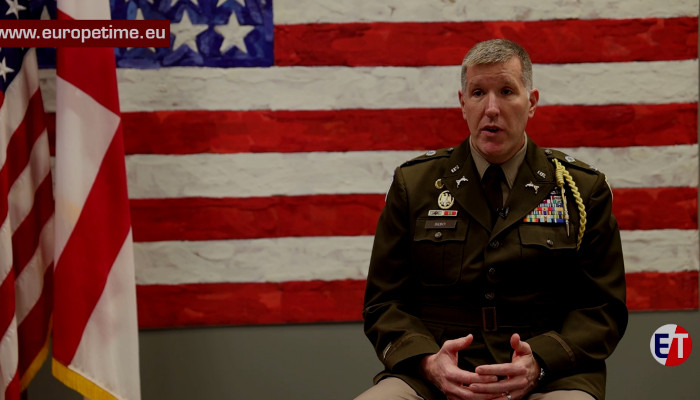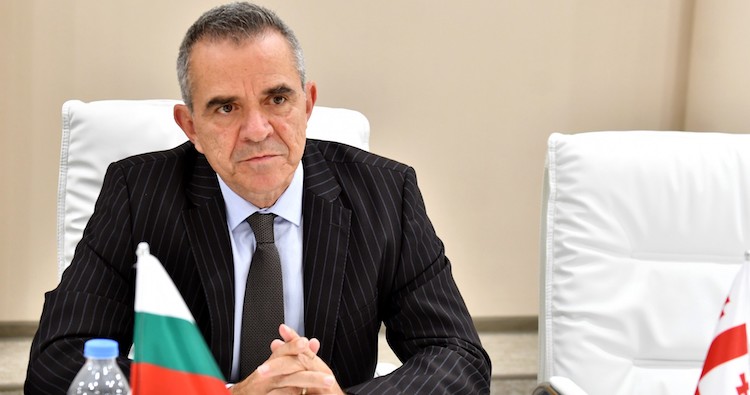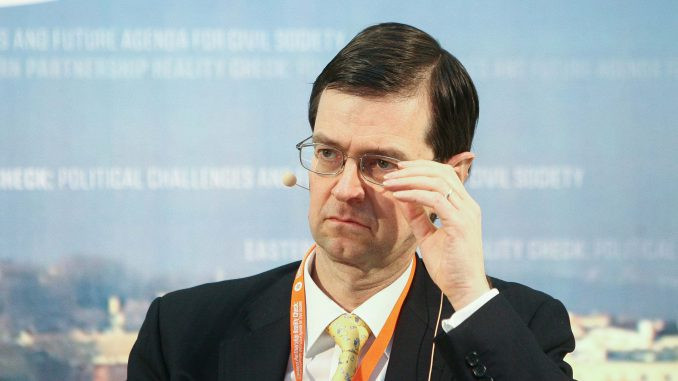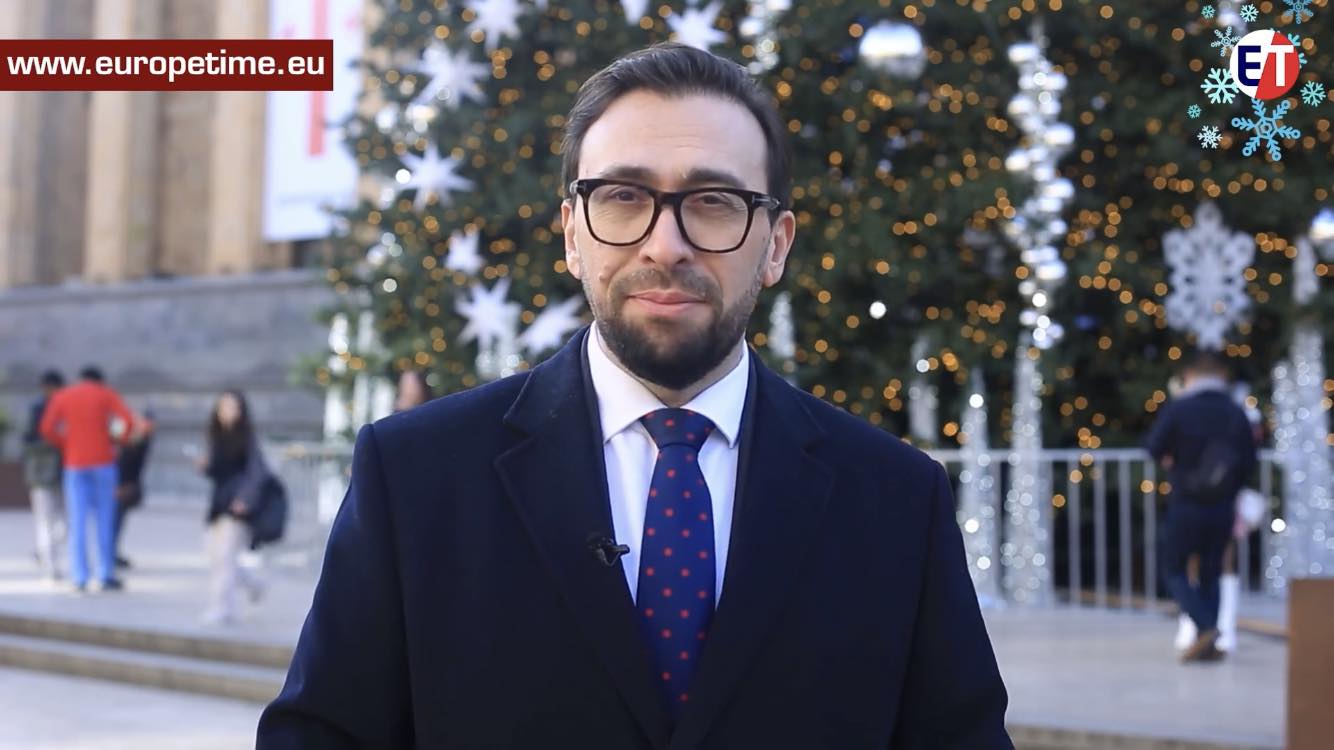EuropeTime provides an exclusive interview with the US Defense Attaché in Georgia, Colonel Joseph Bilbo.
ET: How do you assess Georgia’s achievements since regaining independence as a function of USG assistance?
Colonel Bilbo: I had the fortunate opportunity to come to Georgia for the first time in 2009, and since then, I've come back and forth to Georgia multiple times. Each time I saw development in Georgia, whether it was the development of the cities of Tbilisi or Batumi in terms of commerce or the products that were available, a lot of that was the result of the work of the Georgian people and the Georgian government. A lot of that comes as assistance from the United States.
The United States has more than 30 offices and agencies here in the embassy that provide assistance to Georgia. But the assistance that used to be provided, the basic humanitarian type of assistance, is no longer part of what the Georgian people need because Georgia has developed beyond that.
I think that one of the things that the Georgian people should be proud of is that the assistance that they receive now is a partnership through which we work together to build stronger markets, better and new access to markets, and stronger democratic principles like the rule of law, which invite greater economic development.
ET: Do you think that rule of law is a problem in Georgia?
Colonel Bilbo: I think rule of law is a challenge in many countries. Rule of law is a challenge because it's hard and it takes constant work. We all know that law is constantly being challenged in the United States, and the courts play an extremely important role in this regard.
ET: The Georgia Defense and Deterrence Enhancement Initiative (GDDEI) is an important component of defense cooperation between the two countries. Against the background of the ongoing war in Ukraine and given the possible threats, as part of this initiative, are there any programs that have been adjusted or accelerated?
Colonel Bilbo: "Jedi" is an evolution of the previous program, the Georgia Defense Readiness Program. It shows the continual development of the partnership in the Georgian Defense Forces. The program is focused on two aspects: many institutional changes at the ministerial level, including regulations and policies; and then engagement with the Defense Forces on building resilience and resistance capabilities within the Georgian Defense Forces and in Georgia's society.
Unfortunately, what we see in Ukraine is that it remains a very relevant aspect of a national defense plan. I wouldn't say that anything has been pushed to go faster because it was already going quite fast. The adoption of these principles within Georgia, just in the last two years, has been quite impressive and continues today.
ET: Everybody agrees that regional stability has rarely been in more danger or been more important than it is now. Should the issue of Ukraine be considered more broadly in the context of Russia's ambitions to influence the territories of other countries, including Georgia, and how do you see the role of the United States as Georgia's strategic partner from this point of view?
Colonel Bilbo: I think Georgia is in a very difficult neighborhood, and it is not uncommon to see instability in this neighborhood. I don't think you have to go back that far; in fact, the nineties saw multiple wars in Georgia and the Karabakh War south of here. Despite being occupied by Russia for 20% of the time, there is some relative stability. A lot of that has to do with the development of deterrence capability.
That's what the United States is partnering with the Georgian Defense Forces to do, which is to build a defensive capability that is a deterrent to any aggressor state. Unfortunately, we see in Ukraine Russia's continued willingness to use force to break international norms in an attempt to seize territory.
It was blatant. They claimed territory in Ukraine much in the same way that Georgia’s territory was invaded and remains occupied. So, we are here to support Georgia’s defense and deterrence and ensure that it remains within its internationally recognized borders.
I think Georgians know already that Russia is an occupier. Russia continues to keep troops on your territory, not because they were invited here but because they invaded. I think that Georgia understands that geography is not going to change, and Georgia is not interested in, nor does the US support, any type of aggressive activity to resolve that conflict. The U.S. participates in the Geneva International Discussions to try to resolve the conflict and force Russia to comply with the ceasefire agreement, but I think Georgians are very aware of the reality of Russian intentions inside of Georgia.
ET: The war against Ukraine has led to increasing of attention towards the Black Sea security. The Black Sea region is one of the most strategically important for the United States. How important is a coordinated US strategy for the Black Sea region now?
Colonel Bilbo: Strategy inherently needs to be coordinated to be effective. You're absolutely right that the Black Sea has continued to grow in importance. There's much talk among many countries about the development of a middle corridor. The United States absolutely supports this idea with our European allies. I believe that now, when you look at the Black Sea, when you have a conflict in a contained territory like the Black Sea, coordinating a strategy to ensure freedom of navigation, safe passage for cargo ships, and the continuation of commerce is critical, especially given the number of sea mines that have been placed as a result of the war.
ET: During the conference in Tbilisi, it was said by you that the exchange of information and challenges so often seen in the intelligence community are among the issues that the US is working on with its Georgian counterparts and that the war in Ukraine only showed the need to increase this cooperation. What can you tell us more about it?
Colonel Bilbo: One of the main ways that NATO is engaged with the Georgian Defense Forces is through a program called the Substantial NATO Georgia Package. One of the efforts within that package is called Secure Communications and Intelligence Sharing. It's actually led by the Czech Republic, but many of the NATO allies participate in working with Georgia to continue to increase Georgia's interoperability with NATO, and part of that is our ability to share information with one another. We believe that we have shared interests, such as commerce in the Black Sea, from which I think Georgia can benefit a lot. In order to ensure safety and security, we often have to share information that's quite sensitive.
ET: A few days ago, Ambassador Degnan spoke to the media about the importance of the port of Anaklia; she also noted that several qualified operators were interested in the mentioned project. What do you think is the strategic importance of this port, apart from economic benefits and investments? How important is this project for Black Sea security? In your opinion, does this project fit into the Black Sea security concept? Georgia has an important transit opportunity; it will be possible to transport various cargoes from Central Asia to Europe when, due to Russian sanctions, financial institutions are looking for alternative transit corridors.
Colonel Bilbo: Expanding deep water ports is part of the development of commerce and trade that will occur on the Black Sea. A deep water port or extra port availability in Georgia should bring economic development to the country.
From a security standpoint, it increases the opportunity to host ships from allied and partner nations. Georgia used to host quite a few visits of U.S. ships and other NATO ships. Unfortunately, that's been constrained due to the war, but we very much look forward to our naval assets visiting Georgia again when the sea is returned to a stable state.
ET: How do you assess 2022 for the U.S.-Georgian partnership?
Colonel Bilbo: The pandemic caused us all to pause, and then we had to figure out how to resume. 2022 did a lot for our relationship as well, where we were connecting, albeit often virtually. We've been able to reconnect now, face to face, which has strengthened and reinvigorated our cooperation and partnership, providing the opportunity to bring troops in to train with the Georgian Defense Forces, and the opportunity for Georgia to host international conferences, which helps highlight the challenges that Georgia faces and, I think, will continue to bring stronger and greater partnership with NATO allies and the United States.







